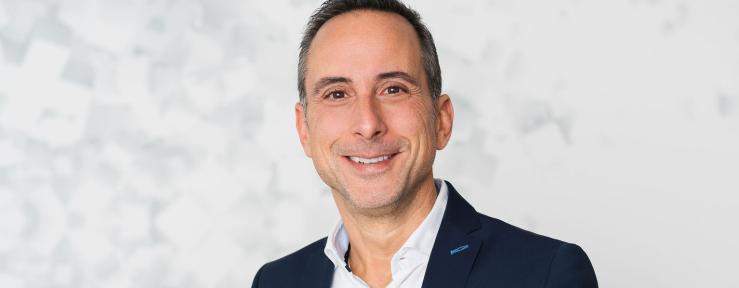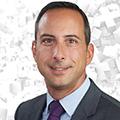Vincent Bieri: more than 30 startups will be exhibiting as part of the SWISS Pavilion at the CES in Las Vegas in January 2019. You actually trained six of them as part of a sales pitch workshop organized by Innovaud and Switzerland Global Enterprise. As a sales coach, what is vital for Swiss startups to know before they hit a trade fair such as the CES in Las Vegas?
The most important thing is to understand the value of the opportunity on offer. It’s not always clear to young entrepreneurs that such an event can change their future, boost their efforts in finding partners, accelerate their sales or help them find great people to join their team. It’s important to know this beforehand, rather than realizing it upon your arrival, when you also realize that you’re not ready and that you should have prepared better and differently. Once you’re there, it’s too late!
My advice to participants is to spend time understanding why they are going to CES and what opportunities the event might open up. They should draw up a plan that will maximize their time at CES and give them a chance to make it a success, rather than the simple “let’s just do thre what we usually do there” plan. The plan should include:
- A demo that rocks (great impact scenarios, even if only prototypes)
- Pitch/message (30 sec, 5 and 15min)
- Client intelligence: what should we always ask potential clients in order to compile our leads database?
- After CES: how will we follow up? What information do we need? What should we offer them at the fair to guarantee a follow up?
- On-site meetings with key targets booked in advance
- Things you should do at the event booth, as well as anything outside that can contribute to securing a meeting or discovering things that you otherwise wouldn’t, such as meetings at breakfast and dinner, leisure activities or gathering competitive intelligence at other booths/pitches/sessions
- Who do we need in our team to involve preparing all this, and to be in attendance to carry it out? And who will follow up?
Why is it important for startups to specially prepare their pitch?
We are all always very good at explaining our product and innovation, but not so great at explaining why someone needs it. Clients and partners buy what they can achieve with the product or the life- or business-changing situation that it creates for them. The key is to clearly explain the product in a high-impact manner, including those the product is intended for, as well as its uniqueness with regard to tackling the problem – and less in terms of its technical innovation. Furthermore, entrepreneurs tend to believe that information drives action: Actually, information drives analysis! Emotions drive actions. Learning how to put emotions into a pitch/messages is key. In short:
- Solidify the “why” (why my idea, why me, why now) of the pitch and value proposition. In other words, put yourself in your audience’s shoes.
- Add emotions and remove overwhelming information (by sharing great stories)
As a coach, what results would you like to see at CES? For example, with regard to impressing the US public?
One global goal would be for the Swiss startups, entrepreneurs and innovations present at CES to get Switzerland recognized as a country with great world-changing potential. Each startup should realize that such events can help them make a leap, and not just a step. They might meet a Fortune 500 client who they will acquire in 2019, investors, partners, or an amazing future employee who will make a big difference to the company.
You have trained many startups at the Sales Pitch Clinic workshops: can you share your experience of working closely with Swiss entrepreneurs?
The companies and entrepreneurs who participated in the pitch training and those I coach via other programs are all different, but they do have a few things in common. The differences include: they all make different tech, operate in different markets, have different backgrounds, setups, teams, funding and are at different stages. The similarities include: to start with, they all have passion, ambition and they are smart. They also all share the fact that they capture interest out in the market but struggle to turn this into concrete and repeatable business outcomes. I thus teach them to focus, position the problem they solve and create impact via emotions to trigger actions from their audience.
This interview with Vincent Bieri was published on the Innovaud website.






